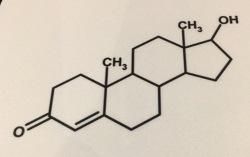
I like to make You Tube videos from time to time. I do not mind talking about my condition, perhaps I talk about it too much but I do like to try to raise awareness of the condition to help people get an earlier diagnosis and treatment.
I was 23 before I was diagnosed, up to that point I was still classed as a “late bloomer”, even though I did have two of the other extra symptoms along with the lack of puberty that could have led to an earlier diagnosis.
What is Kallmann syndrome ??
-
Kallmann syndrome is a rare genetic hormonal condition that causes puberty to fail to start or not fully complete.
-
Kallmann syndrome affects both men and women but is more commonly diagnosed in men.
-
Kallmann syndrome is associated with having no sense of smell (anosmia)
-
Kallmann syndrome is a form of a condition that is also known as congenital hypogonadotropic hypogonadism (CHH)
-
Without treatment people with Kallmann syndrome do not go through puberty, do not develop secondary sexual characteristics and are normally infertile.
-
People with Kallmann syndrome normally require life long hormone replacement therapy.
-
Specialist fertility treatments (gonadotropin therapy) are available.
-
Even though it is a genetic condition, no one gene defect is common to all cases. To date over 40 different genes have been found to cause cases of Kallmann syndrome, and this barely covers 50% of cases.
-
It is a broad spectrum condition with a range of severities, even amongst family members. Some people with KS can experience partial puberty while others experience virtually no puberty and have additional symptoms
-
Additional symptoms that can occur in some cases include: Nerve deafness, mirror movements of the hands, missing kidney, cleft lip, eye movement problems, scoliosis, fused fingers or toes, missing teeth.

Over the next three months we have three on line patient meetings set up on Zoom. In forthcoming months we will have meetings for “Female patients with Kallmann syndrome & CHH” and “Sex and Intimacy”.
The next meeting will be “Young patients and adolescents“. It could also be helpful for those recently diagnosed.
Sat May 23rd. Noon EST / 5pm London UK.
The meeting will be hosted by Dr Andrew Dwyer of Boston College, USA.
Dr Andrew Dwyer is a world renowned expert on Kallmann syndrome / CHH and has a particular interest in helping patients learn more about their condition and take a more active role in their health care.
For a link to a meeting send an reply to this post.

Link to article:
Psychosexual effects resulting from delayed, incomplete or absent puberty
Kallmann syndrome and CHH are not the same as “delayed puberty” or “late puberty”.
As a Kallmann syndrome patient this is an area I am particularly interested in.
The hormonal treatment side of Kallmann syndrome and congenital hypogonadotropic hypogonadism is fairly straightforward I think, with not that much change in the past 20 years, apart from perhaps different types of gonadotropin products.
It is psychological & psychosexual side that has been largely overlooked.
Missing out on puberty and adolescence can have a huge impact on a person which is mostly not corrected just by hormonal treatment.
One point that is overlooked I think is that in Kallmann syndrome / CHH hormone treatment does not bring on “normal” puberty. Even when diagnosed early and treated early problems can still occur in terms of body image, self confidence, social awareness and coping with infertility.
This is an area which hopefully can be addressed better in the future or at least recognised as a potential issue for Kallmann syndrome / CHH patients.
This work comes from the surveys and studies that Dr Andrew Dwyer of Boston College, USA conducts in the Facebbok groups and at patient meetings.

As part of Rare Disease Day 2020 there will be an webinar / on line patient meeting for Kallmann syndrome patients on 29th Feb. Hosted by Dr Andrew Dwyer of Boston College USA.
The meeting will start at 2pm Boston local time, 5 hours behind GMT.
E-mail kallmannsyndrome@gmail.com for a link to attend the meeting via Zoom software app.


Recently a friend of mine gave a presentation to a group of paediatric doctors as a case presentation for Kallmann syndrome. This is an audio recording of his talk. I think it is a very open and honest account of the diagnosis and treatment of his condition.
I think it can be very helpful to have talks like this to help raise awareness rare conditions with medical professionals.
A fairly common question asked is what is the incidence of Kallmann syndrome and CHH.
The easy answer is that nobody really knows as these condition cover a range of symptoms and severity, are caused by over 40 known genetic variations and not widely known about in the medical community.
A recent review paper from Finland stated the range of incidence quoted in published papers varied from 1 in 8,000 to 1 in 29,000 for men and 1 in 40,000 to 1 in 300,000 for women.
ORPHA.net, which is the world wide genetic database for all rare disorders estimates that for both males and females the overall incidence is 3.75 per 100,000.
If my maths is correct this works out to be 1 in about 26,667 people.
How many people with KS / CHH in each country: (rough estimate of course):
UK: 2,437 people
USA: 12,150 people
Aus: 900 people
Certainly counts as a rare condition by definition of both the American and European rare disease organisations (NORD and EURODIS).

